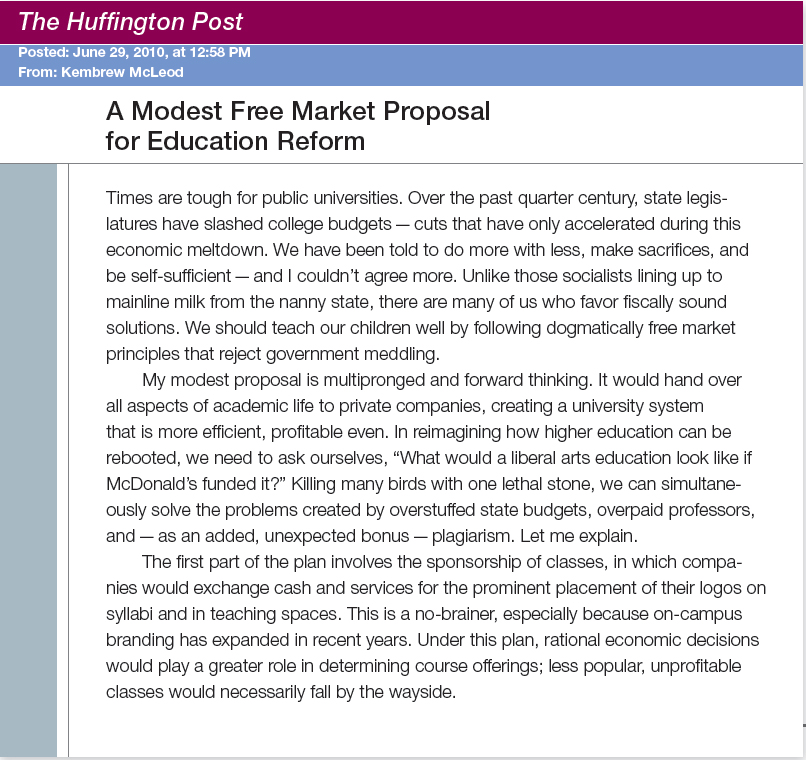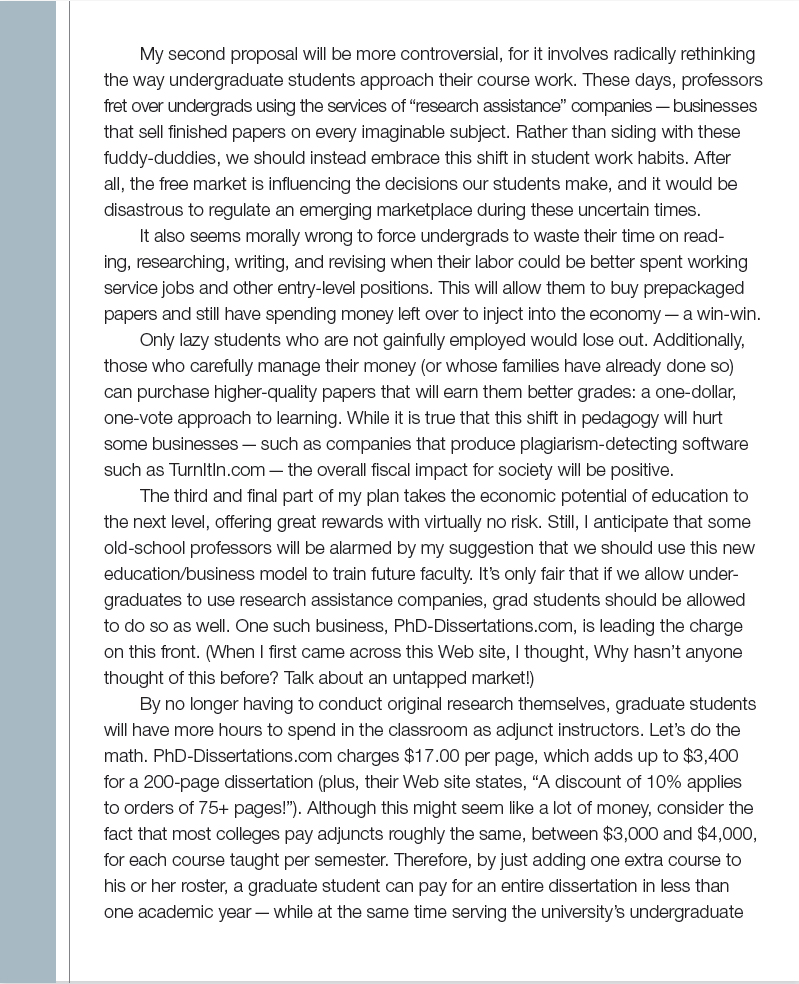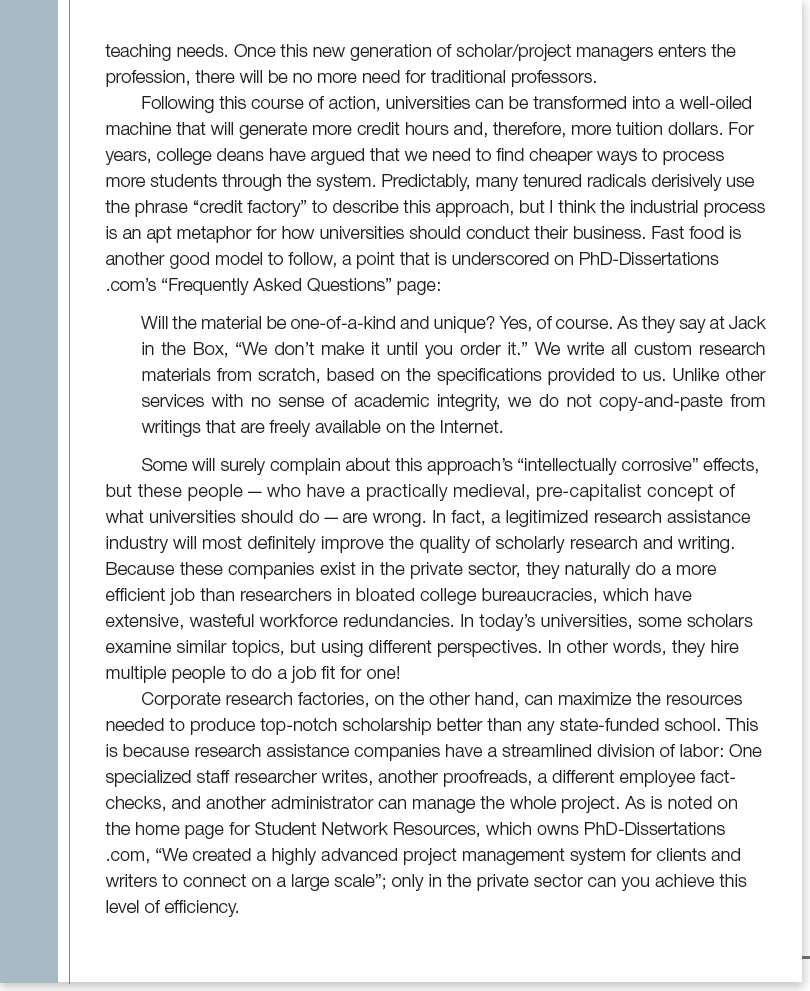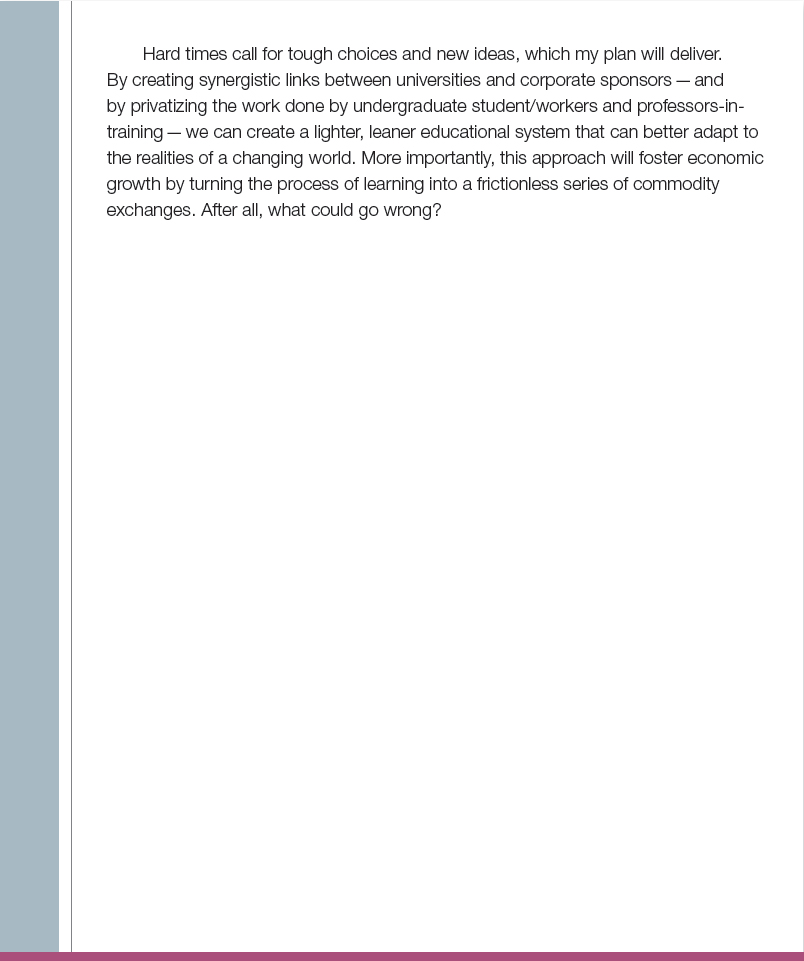SATIRICAL PROPOSAL
SATIRICAL PROPOSAL
Kembrew McLeod is an activist, music critic, and documentary film producer. He focuses his work on issues of copyright and intellectual property and famously made an ironic point in 1997 by registering the phrase “Freedom of Expression” as a U.S. trademark. McLeod’s books include Freedom of Expression: Resistance and Repression in the Age of Intellectual Property (2005), Creative License: The Law and Culture of Digital Sampling (2011), and Pranksters: Making Mischief in the Modern World (2014). He teaches communication at the University of Iowa and enjoys playing pranks.




Reading the Genre